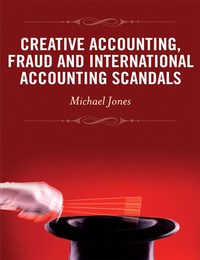Question
DUNCANS DRINKS Duncan Mwali has always had a knack for performance art. As a child, he was always the popular kid putting on magic show
DUNCANS DRINKS
Duncan Mwali has always had a knack for performance art. As a child, he was always the popular kid putting on magic show for his friends. He graduated from university two years ago with an engineering degree, but quickly decided that a 9-5 office job wasnt for him. He began contracting out his engineering services and continued developing performance art.
Soon enough, Duncan was making a lot more money with magic shows at birthday parties. He also had bartending experience, so he helped his clients with that too. Slowly, he began incorporating his magic skills and quick hands into bartending and partygoers all over town loved it! His bookings have skyrocketed and he confident he can earn more in the upcoming year than he would have made as a full-time engineer.
Duncan wants to make sure he conducts business the right way from the get-go. Hence, he is seeking advice on accounting matters. First, he isnt sure about how to journalize things. He believes that if he can get guidance on one of his party appearances, he would be able to go back and record the years previous events on his own. Here is some information from last nights party (May 7th): Duncan quoted $600 for a three-hour appearance and the client, a friend, accepted. Duncan brought some of his own liquors and flavors, a $30 cost. Duncan used several props in his magic acts. There was reusable equipment with a value of $1,300 (expected to last five years). He also had single-use props which had cost $50. Duncan buys these props in bulk, but tries to use them quickly since older ones are more likely not to work.
In addition to having accurate financial statements, Duncan wants to practice good budgeting. He is trying to save up for some new equipment which will allow him to do cooler things and earn even more money. Currently, Duncan is quoting two rates- $200 an hour for friends and $300 an hour for people he doesnt know. If a party is out-of-town, Duncan adds on $50 for travel expense. Here is Duncans projected data for May (includes bookings which have already happened):
Item Count/Dollars Regular bookings (2 out of town) 9 bookings
Friend bookings (3 out of town) 6 bookings
Average length- regular bookings (in hours) 2.75 hours
Average length- friend bookings (in hours) 3.10 hours
Single-use props- average cost per hour $15 per hour
Repair and maintenance of equipment $150 per month
Average motor vehicle expense (includes fuel and repairs) $50 per booking
Duncan has just finished paying off his student loan, so he is now looking at investment opportunities. He wants to save until he has $50,000 in the bank then select an investment. However, he believes he will be in a position to invest next year, so he is weighing the pros and cons now. Here are some of his options:
1. Buy a home: Duncan is currently paying $1,000 a month in rent. Buying a home would mean eliminating rent expense, but paying $600 in interest each month (3.50% rate). Duncan would also budget other home expenses (taxes, repairs, utilities) at $350 per month. Ten years from now, the home is expected to be worth $40,000 more than its current value.
2. Invest in the stock market: Duncan could put the $50,000 in the stock market. The stock market is expected to return 8% per year (on average) for the next ten years.
3. Open a magic shop: Duncan could open a new store and work part-time (his schedule includes a lot of free time during the mornings and early afternoons). With a full-time employee, Duncan anticipates the store breaking even in its first year. The following year, he expects $10,000 of income- this income would double in the following year then remain constant for the next eight years. Duncan is slightly concerned the magic shop may eventually negatively impact his main business a couple years from now (reduce monthly revenues by 15%). If he eventually hires a second employee for the store, the income would be $15,000 per year for years two through eight (it would remain as $0 and $10,000 for the initial two years).
Help Duncan with a monthly budget and journal entries. Also, advise him on his investment options. Discuss all relevant issues, including pros and cons of each course of action. Outline any questions/inquiries which should be directed to Duncan and why the information is important to certain decisions.
Step by Step Solution
There are 3 Steps involved in it
Step: 1

Get Instant Access to Expert-Tailored Solutions
See step-by-step solutions with expert insights and AI powered tools for academic success
Step: 2

Step: 3

Ace Your Homework with AI
Get the answers you need in no time with our AI-driven, step-by-step assistance
Get Started


